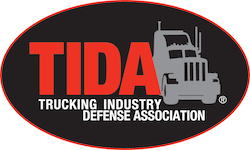College is a funny thing. They send you into a 4-year study program expecting you to know exactly what you want to do for the rest of your life. After hours on hours of lectures, they send you off with a diploma and expectations of immediately landing a senior-level job and becoming a respected industry leader.
But we all know that’s not how the story goes.
Sometimes we end up in the field we major in immediately, sometimes we go through a few other hoops and bounds before we find what we’re looking for. Mark Walls is a perfect example of the unpredictable life journey we take to get where we want to be. He graduated from Iowa State University with a degree in communications and took some non-communication related jobs for a few years before he stumbled upon the workers’ compensation industry. After that fateful day and 25 years of dedication, he only continues to exceed our expectations with all of his prestige and success as the Vice President of Communications and Strategic Analysis at Safety National.
Walls spoke candidly about his journey and discusses tips on managing a harmonious team. If this doesn’t get you amped up, we’re not quite sure what will!
It seems like you had a smooth launch into your professional life with senior roles. What were those early days like when you were figuring out your path?
Most people are not lucky enough to find their career path right out of college and neither was I. My first post-college job was as a store manager for Jiffy Lube. I knew nothing about cars, but they were hiring college grads for management roles so they had people who could manage payroll and inventory. After a year of doing that, I tried life insurance sales which was a good way to not earn money.
Finally after two years trying to find my career, I saw an ad seeking a workers’ compensation claims trainee. They wanted someone with a college degree and 1-2 years of general business experience but no claims experience. The company was looking for people interested in developing a career in claims. It sounded interesting to me and I applied. I started working as a claims trainee in January 1990 and have been in the industry ever since.
After over twenty years handling claims I eventually transitioned into my current role. So it only took me 25 years to get a job that required my degree in Communications!
Why workers’ comp? What legacy do you hope to leave in the industry?
Workers’ compensation is a business of helping people. It is very challenging but can also be very rewarding.
In terms of legacy, my goal is to educate, inform, and hopefully be a catalyst for discussions and positive change in the industry. I would like to help bring competing parties together for the greater good of the industry and the injured workers and employers who we serve.
What are your goals in your current position?
In my current position, I am responsible for some things I have never done before, including oversight of our marketing, branding, and advertising. Some of the things I learned on the consumer end of the business help me have a greater understanding of how to approach things from a marketing perspective. People want useful information, not someone trying to sell them something they don’t need. One of my main goals is to be a good resource for others in the industry. I want to assist connecting people with problems to those who have good solutions.
I am also a knowledge junkie so I try to find any opportunity to expand my knowledge base of not only workers’ compensation but other lines of Casualty coverage. I love talking to people about new ideas and approaches to solving the challenges we face.
 Image from Safety National
Image from Safety National
What are the keys to managing a productive and successful team?
It is important to empower your team to be the best they can be. This means providing them with the guidance, support, tools and information needed to do the job. But it also means getting out of their way and letting them execute the game plan. In the medical community, they talk in terms of “practicing at the top of your license” which means doctors do the things only doctors can do and other tasks are delegated to nurse practitioners and physician assistants. I think that is a lesson we can all take to heart. Don’t be afraid to delegate. Focus on doing the tasks only you can do and let others take charge of tasks they can do. That allows your team to grow.
How do you keep yourself and your team motivated?
For me it’s simple. I enjoy what I do. There is no greater motivation that happiness and my company has given me a position that I truly enjoy doing. I am blessed by this and very grateful to them. My goal is to work hard and play hard. Don’t take yourself too seriously and smile!
As for the team, it gets back to empowering your team to succeed. Always take the time to say thank you and recognize a job well done. Don’t be overly critical when things don’t go exactly as planned. Make bumps in the road a learning experience. But most of all, it is important to make the work environment enjoyable. Happy employees are the best employees.







